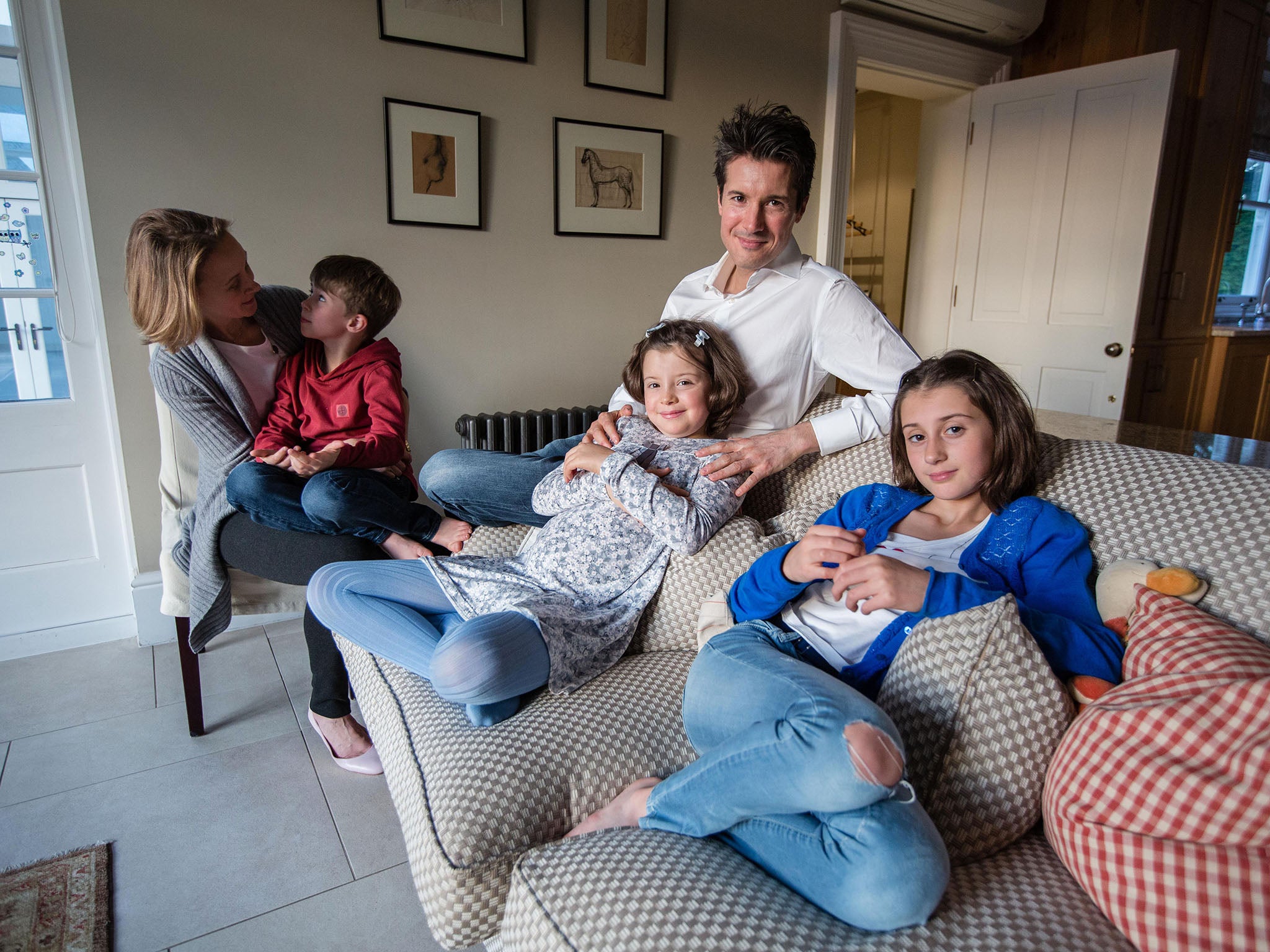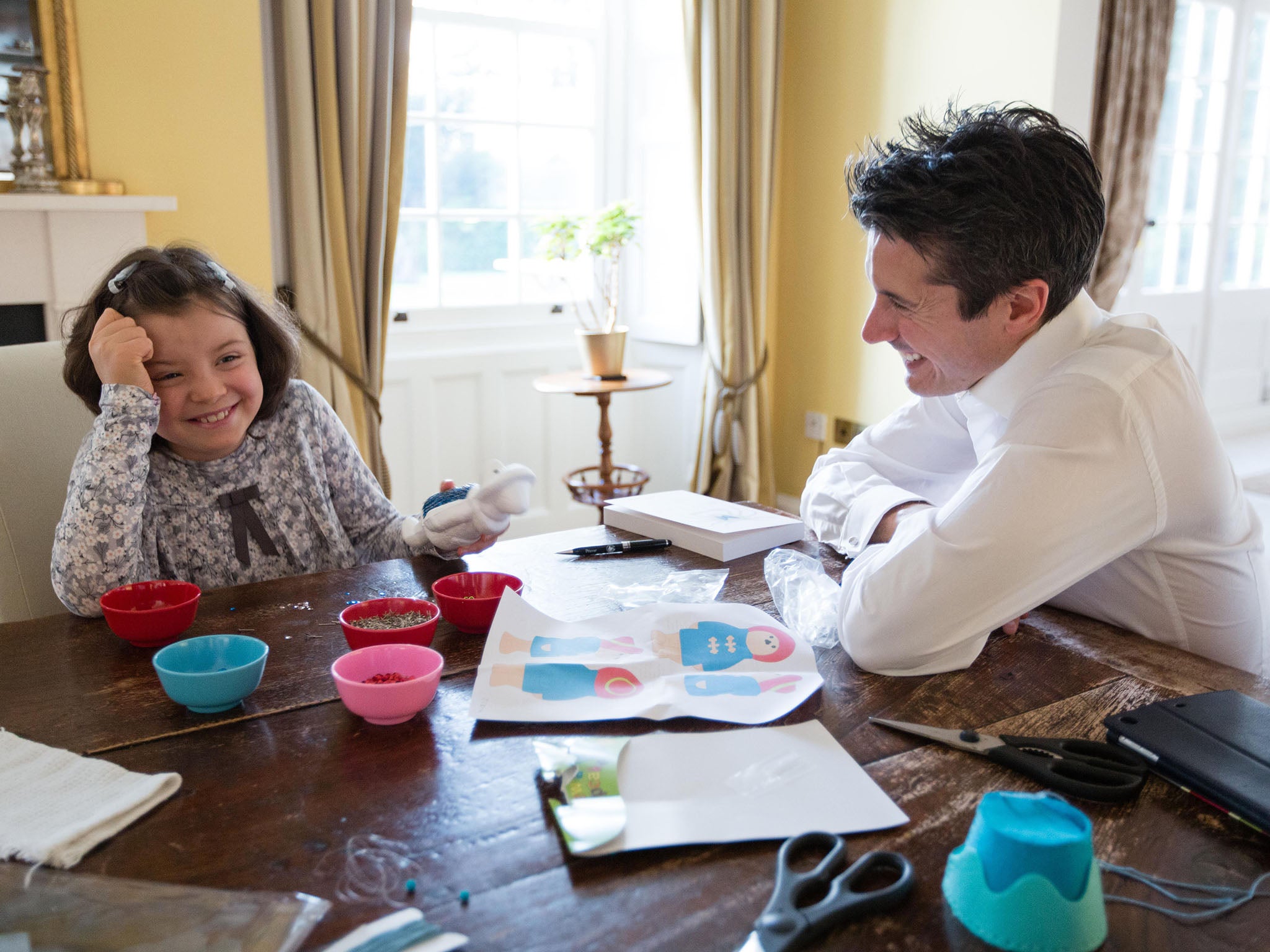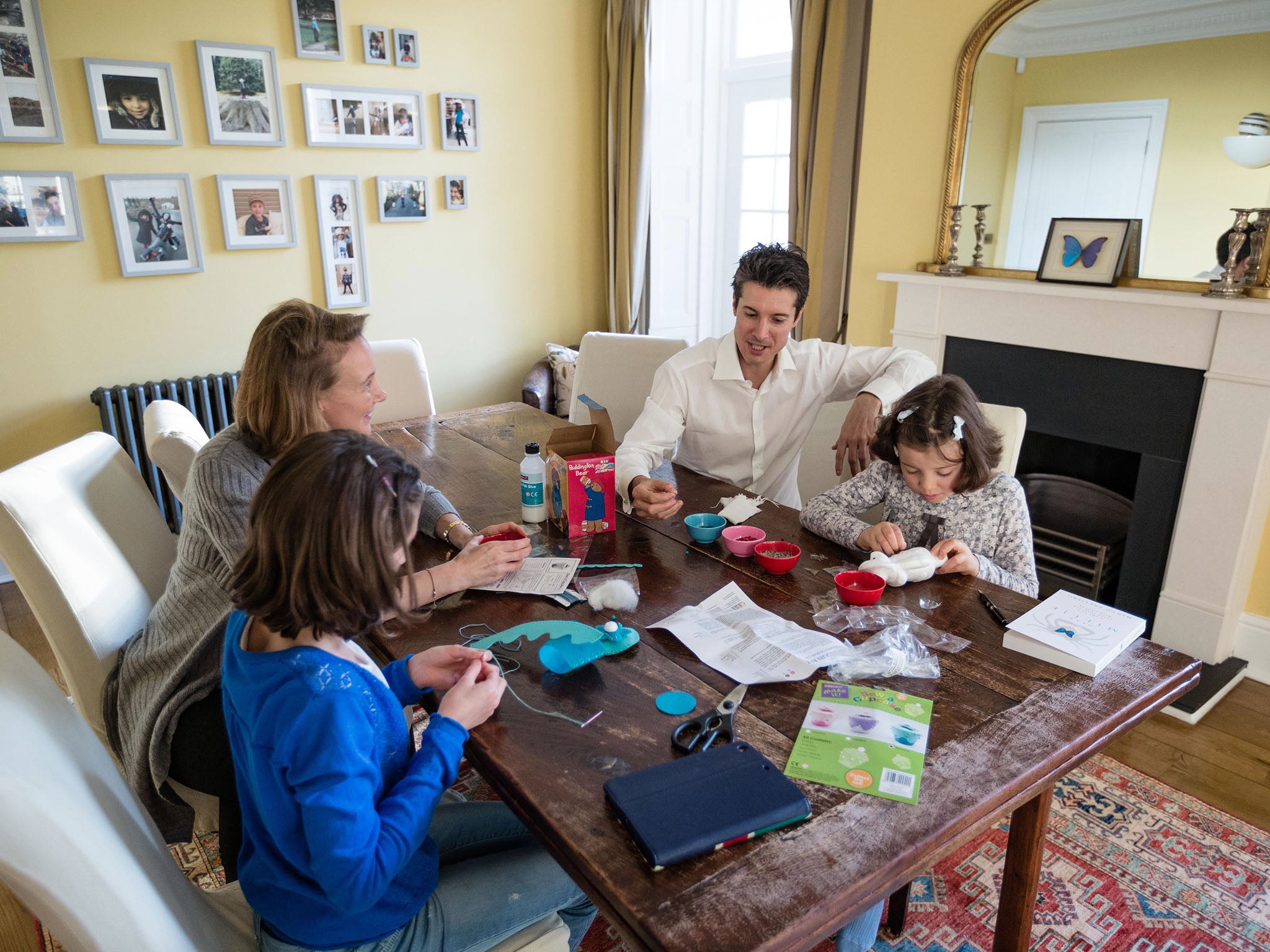Dear Millie: Diary of a Seven-Year-Old With Cancer author on how his family coped after receiving the terrible news
Though the cure can be unkind – a brush with death can have strangely life-affirming effects

Your support helps us to tell the story
From reproductive rights to climate change to Big Tech, The Independent is on the ground when the story is developing. Whether it's investigating the financials of Elon Musk's pro-Trump PAC or producing our latest documentary, 'The A Word', which shines a light on the American women fighting for reproductive rights, we know how important it is to parse out the facts from the messaging.
At such a critical moment in US history, we need reporters on the ground. Your donation allows us to keep sending journalists to speak to both sides of the story.
The Independent is trusted by Americans across the entire political spectrum. And unlike many other quality news outlets, we choose not to lock Americans out of our reporting and analysis with paywalls. We believe quality journalism should be available to everyone, paid for by those who can afford it.
Your support makes all the difference.On the morning of 5 April 2013, shortly after her seventh birthday, my daughter Millie woke up complaining of “fuzziness” in her beautiful brown eyes. The fuzziness turned out to be loss of vision in her right eye and near-blindness in her left. Over the course of one night, darkness had set in for good. I know now what I felt then. My conscious self realised it was an indication of a very serious symptom. My subconscious recognised its more sinister aspect, and life as I knew it would never be the same again.
Within the next two days, Millie underwent her first eight-hour long craniotomy to try to preserve the little vision she had left. Within four days, by now blind, she was diagnosed with a brain cancer. Within a fortnight she began her first cycle of aggressive chemotherapy as an inpatient of Great Ormond Street Hospital (Gosh). Over the course of the next six months, she would undergo two further brain operations, three more cycles of chemotherapy and 30 sessions of proton-beam radiotherapy, the latter 4,000 miles from home, in Oklahoma City.
No one teaches you how to cope when your child is diagnosed with cancer. No one can explain the pain you feel when you see them suffer in the way Millie did. No one can measure the depth of dejection when you realise that your daughter might die within weeks or, if she doesn’t, that her quality of life will be diminished substantially – often as a result of the cure, rather than the disease.

And yet the learning happens daily, with morbid monotony across the many wards of Gosh. Parents think nothing of the extraordinary effort required to navigate the hostile landscape of cancer and its treatment, with its abysses bereft of hope, its lonely, penumbral plains, and its peaks which cast shadows across life after cancer. The focus is often on the illness, or how incredible the children are – both valid topics. My emphasis here is to look at an aspect that doesn’t get enough exposure: the application of the treatments needed to cure the disease, the many side effects – which are often life-altering, long-term or permanent, – and how my encounter with it all changed my view of the world and life as a whole. I will start by first telling you what cancer is not.
Cancer is not a fight. Having held my daughter’s hand over the past two years, I am not a proponent of the vocabulary of warfare when it comes to curing this disease. I cannot think of many other illnesses that attract such belligerent, misleading language (you beat it, you fight it, you survive it, or you lose the battle against it). No. Cancer is not a fight. It is the careful management of risks against benefits. This includes the dangers of cancer and its development, of course, but also the many threats associated with curing it, often far more devastating and long-lasting than the disease itself. The risk of not curing cancer for Millie was blindness, quickly followed by death; but consider the risks of applying the cure against that, and specifically the hazards associated with the three broad treatments she received: brain operations, chemotherapy and proton-beam radiotherapy.
Without delving too deeply into the complexities of a craniotomy, Millie was likely to suffer strokes during and after each of her three gruelling brain surgeries. Strokes which would have ended her life there and then. During the second operation, having by then recovered some of her vision, there was a real possibility that the surgeon’s hand would inadvertently cut the optic nerves – causing instant, irreversible blindness. This happens in one in every five operations on average. Or consider the risk, which unfortunately for Millie crystallised, that in performing a complete resection of her tumour, a small bunch of specialised neurons, no bigger than the tip of a fingernail, associated with the control and regulation of hunger, would also be damaged; the consequence of which is a condition called hypothalamic obesity. It’s a condition that Millie will have for life, which drives her to food irrepressibly and adds behavioural insult to physiological injury by also slowing her metabolism. Chemotherapy, not cancer, took care of her fertility, now gone for good. So Millie will not be able to have children of her own. And she can be grateful for her good fortune. When being injected with chemical agents so toxic they are able to destroy the very core of cellular structures, in other words, what makes up 100 per cent of you and me, Millie could have lost her hearing and sustained permanent damage to her kidneys – she did, in fact, suffer acute kidney failure during her second cycle of chemotherapy, leaving her on the brink for 24 hours. And if that wasn’t enough, radiotherapy, not cancer, impaired in perpetuity her ability to think in abstract terms and retain facts in her short-term memory – making learning very difficult.

So you see, cancer is not a fight. It is the careful management, by medical professionals, of risks against benefits. And these risks and benefits are astronomically complex, relative and contextual. There is no black and white in this game of life and death. Millie got lucky – she got life. Others weren’t. Others aren’t. Others won’t.
In giving life back to Millie, cancer profoundly altered my view in ways I did not expect. Primarily, it changed my opinion of others. This bunch of fast-dividing cells, the size of a golf ball, revealed a side to human nature I had seldom encountered, conditioned as I was by the media into thinking most strangers were paedophiles, murderers or rapists. On this rare occasion when I was forced to interact, by necessity, with people I didn’t know, I was overwhelmed by the kindness and generosity of outsiders, who pulled together instinctively when cancer struck a seven-year-old girl, and asked for nothing in return. I am grateful to them all; grateful and humbled. I have been exposed to circumstances unrepresentative of normal life. I have met families whose children are going through the most severe of treatments, treatments that make Millie’s malignant tumour seem like a mild headache, a headache that nonetheless very nearly killed her.
In nearly taking my daughter, cancer has given me a sense of perspective that invades you when events so overwhelming and traumatic unexpectedly arrive to disrupt the peace and stillness of everyday life. In shifting my sense of proportion, this ordeal has enabled me to appreciate what I already have much more, and spend less time agonising over problems I don’t have. Having spent the past few years circumnavigating the perceived duplicity and difficulty of life, I have had my compass recalibrated to the here and now by Millie’s malignant tumour, and I appreciate the journey all the more.
Outsiders looking in often attribute valour to the way in which I handled myself over the past two years. But every parent of a child with cancer knows there is nothing brave about it. Brave is when you have choice. And choice, much like hope, is often an illusion when navigating cancer treatment. As I contemplate life after cancer, however, I will allow myself some hope – that I have given you, the reader, a better understanding of this disease and its devastating cure in the context of paediatric care; that Millie will continue on her long, arduous path to some semblance of normality; and finally, that new research, so needed, will discover innovative ways of eradicating cancer – and perhaps more importantly, of limiting the sickening long-term side effects that its cure very often brings.
‘Dear Millie: Diary of a Seven-Year-Old With Cancer’ by Marco Previero is available on Amazon (paperback, £9.99; Kindle, £3.47). All proceeds to Great Ormond Street Hospital
Join our commenting forum
Join thought-provoking conversations, follow other Independent readers and see their replies
Comments